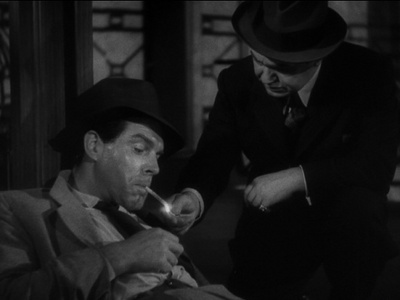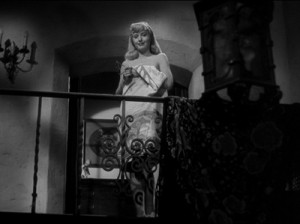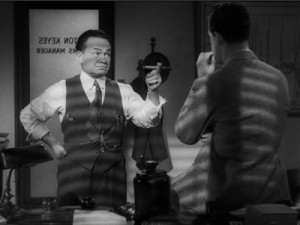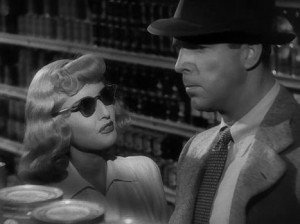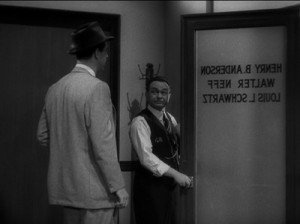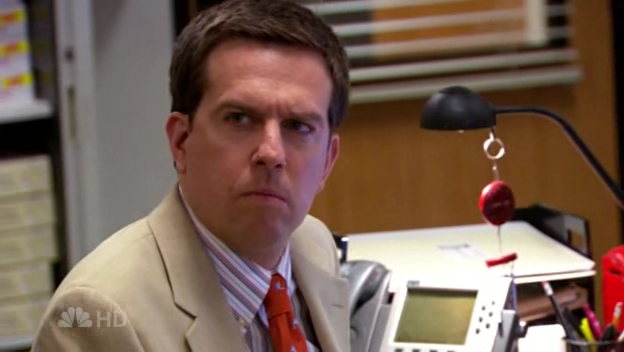 There’s absolutely no way this is the first place you’re reading this, but James Spader will be leaving The Office at the end of this season. According to Paul Lieberstein, who pulls triple duty as show runner, writer, and actor who plays Toby, this was in the cards from the start, and it was always the intention that Spader wouldn’t stick around for longer than one season. According to common sense, on the other hand, that’s bunk.
There’s absolutely no way this is the first place you’re reading this, but James Spader will be leaving The Office at the end of this season. According to Paul Lieberstein, who pulls triple duty as show runner, writer, and actor who plays Toby, this was in the cards from the start, and it was always the intention that Spader wouldn’t stick around for longer than one season. According to common sense, on the other hand, that’s bunk.
I could get into the behind-the-scenes reasons that we already know this isn’t true, but I don’t really care to do so (unless someone asks), as I’m far more interested in pondering what this means, and what it says about the show as a whole right now.* Suffice it to say that something changed here, and since it’s Spader leaving The Office and not The Office ditching Spader, we can pretty easily guess what it was.
I’d like to imagine that Spader signed up expecting to be part of a very good show. Probably not with any expectation that the show would be as good as it was in its heyday (more on that in a moment) but at least that he’d be part of a television comedy of relatively high quality. What he got — an interpretation reinforced by the fact that he’s announced his departure now, before the season’s even over and these sorts of announcements would feel more at home — was something he couldn’t be as proud of. He signed up to play a masterfully intimidating creature of intrigue, and he was immediately reduced to an assortment of fumbled character quirks trapped in a world of broad-and-getting-broader caricatures.
Perhaps he knew that this was the direction the show had been taking for a few seasons now, but thought he could help it get better. Perhaps he hadn’t seen the show since, oh I don’t know, when Michael started his own paper company. Or perhaps he’s never seen the show and his agent just told him it was really good. Whatever the reality, it didn’t live up to the fantasy, and Spader told Lieberstein he was leaving, perhaps with a disarmingly intense glower that was a far more effective use of his off-puttingly seductive anti-charm than the show ever let him display on camera.
This season of the show has been, to put it in the most polite way possible, a pile of stinking shit. But it’s important not to place the blame on Spader, as last season might have been somewhat better but certainly wasn’t good in any sense of the word. (It also included perhaps the worst episode this show could ever produce, the abysmal and embarrassing “Threat-Level Midnight.”) The Office, in short, hasn’t been good for a long time, and I’d argue that it never even lived up to its potential even in its early years, when everybody was going ape over it. To me it just started like a watered-down imitation of its much more confident British cousin, and it pretty quickly started down the road to cartoony nonsense that it’s still hurtling down today.
None of that, again, is Spader’s fault. Nor could it possibly be. In fact, Spader was probably this show’s last hope.
I remember the interview aspect of the final episodes last season, and Spader’s character really seemed like it could take the show in an interesting direction. His coldness had a magnetic ability. He was inhuman, and yet of humans. He was terrifying, and yet the only man you’d want in charge. Whatever he was going to bring to the show, it was going to be interesting.
Then they got him there and just let him flounder as an unrealized distant-manager stereotype, who has spousal issues or something.
That’s not Spader’s fault. That’s bad writing.
My girlfriend and I have talked about the decline of this show before, and a few times we’ve returned to the idea that it can still be funny, yes, but when it’s funny it’s the actors being funny…not the writers. Andy or Creed or Darryl might still make us laugh, but not because they’ve been given good lines…it’s because Ed Helms and Creed Bratton and Craig Robinson know how to deliver even bad ones. The writing has been in decline for ages…it’s the acting that does the heavy lifting.
Spader is a great actor, but his acting didn’t elevate the material. Perhaps because he wasn’t given any material worth elevating. He did his job, he punched the clock, but at the end of the day, there was no reason for him to associate himself with this show, and I think he’s realizing that. They didn’t know how to write a character, and so they didn’t write a character. They’ve never really known how to write characters…they were just blessed from the start with a cast that could bring their own. He was promised (as we were promised) a powerhouse role that would turn the show on its ear. Then he showed up for regular appearances, and they neutered him.
The same thing, on a much larger scale, happened to Andy way back when.
I’ve said earlier that I wasn’t much a fan of the early seasons. I know that puts me in the minority, but I’m okay with that. I’m also okay with the fact that I absolutely adored one of the storylines the show stumbled upon in season three: Jim’s transfer to another branch, and specifically the introduction of Andy Bernard.
Ed Helms, simply, is brilliant in those Stamford branch episodes, and he appeared immediately on the show as one of the most fully-realized characters The Office had ever seen. That, again, is due to the acting more than the writing, as Andy not only had his scripted boastfulness to coast on, but Ed Helms’s hollow swagger, his aggressively sad eyes, and his genuinely endearing musical prowess. Andy was a lot of things at once, and when Stamford was absorbed into Scranton, the show promised some enormous conflict from the merging of the two worlds.
For perhaps the only time, The Office delivered on such a promise. Andy Bernard was simultaneously a suckup and an asshole. He was fiercely loyal and a shifty turncoat. He was endearing, and yet he was dangerous. The episodes allowed his coworkers the chance to needle him as much as he needled them, and though Andy Bernard could certainly dish it out while aggressively maintaining eye contact, he couldn’t take it. Jim plays the comparatively harmless prank of hiding his personal cell phone, and Andy, raging, punches a hole in the wall. This was no cartoon…this was a man with serious issues, and he was stuck in an office with colleagues and a manager who had no idea what to do with him.
Sadly, the show had no idea what to do with him either, and though his mandatory anger management stint made perfect logical sense, it only really served to neuter the character, and he hasn’t been the same since. We’ve spent so much time exploring the fragility of Andy’s emotions and the sadness of his upbringing that we’ve gone so far past humanization that he’s nothing but a walking sack of sad now. Watching his earlier episodes in comparison to what we’re seeing now, it’s sad. Like Jack Nicholson at the end of One Flew Over the Cuckoo’s Nest sad, only there’s nobody around with a pillow. Last season, at some point, Andy got upset and threw a pizza at the wall. I finally started paying attention again, because I thought this meant his long dormant anger issues were finally flaring up again. (It would have been logistically sound for this to happen, as well.) But, alas, by the next episode he was back to skulking around dog-faced and masturbating dark bathrooms to pictures of Erin.
I’m saying all of this because it’s is exactly what just happened with Spader’s character as well, albeit at an accelerated rate. Hell, it’s the same thing that happened with Will Ferrell’s awful character, only they didn’t even wait a full episode before they started dancing around and changing what we were supposed to think of him.
An office in reality should strive for seasons free of conflict. The Office on television needs this conflict, though, if it wants to survive. We have nobody we’re asked to hate and too many people the show wants us to love. Yet they’re all just archetypal shades with nothing that makes them feel particularly human. To feel sad is to feel human, yes, but so is to punch a hole in the wall because there’s no way to turn off your ringtone.
In that long ago, totally forgotten arc, the US version of The Office found something so much like humanity it was scary. Too scary even for the writers, who sent it away to anger management training and brought it back neutered and harmless, where it wouldn’t scare or entice viewers ever again.
Personally, I think it’s high time to bring it back. It might not mean much in the grand scheme of things, but The Office sure would be more interesting right now if I had to wonder at the start of every episode whether or not Dwight was going to get his teeth kicked out. It’d certainly be a more dynamic situation than the office full of sad-eyed nobodies we’re stuck with now.
Where have you gone, angry ‘Nard Dog? A nation turns its lonely eyes to you.
—–
*I would also have accepted “The show is a hole right now.”

